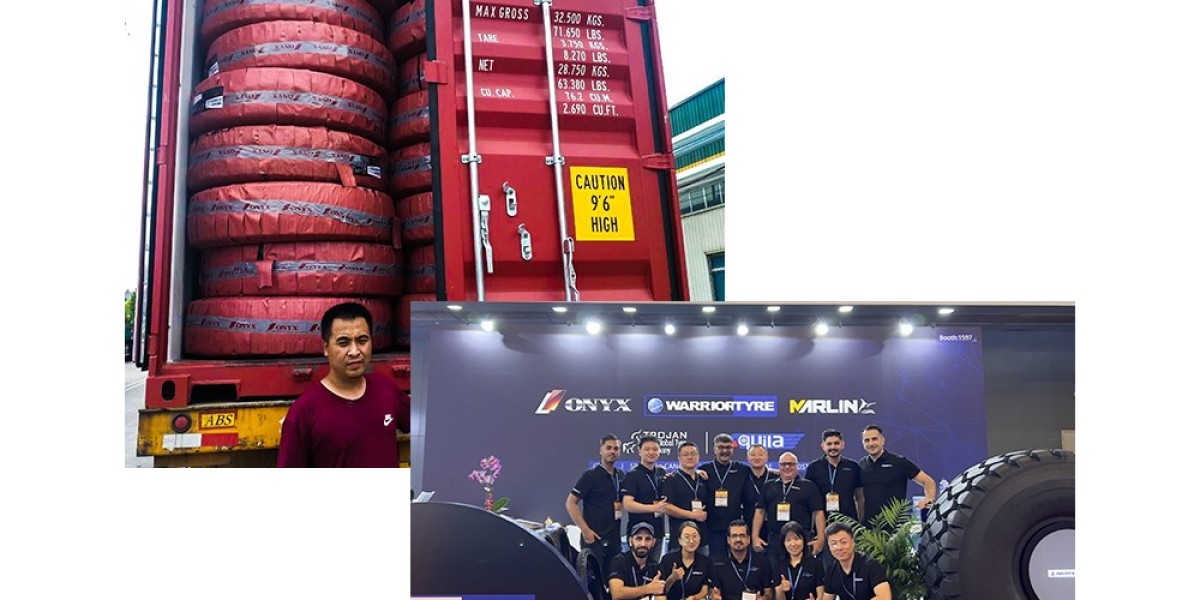Introduction
The global mobility landscape is undergoing a massive transformation. From the rise of electric vehicles (EVs) and autonomous driving to the emergence of sustainable logistics and digitalized supply chains, the automotive industry is reinventing itself. Within this evolution, tyre suppliers stand at a pivotal point — adapting to new technologies, shifting consumer expectations, and environmental demands.
Once seen merely as distributors between manufacturers and retailers, tyre suppliers are now evolving into strategic mobility partners. They are shaping how tyres are designed, distributed, and maintained in an era where efficiency, connectivity, and sustainability define success.
This article explores how the mobility revolution is changing the tyre supply industry, what challenges and opportunities lie ahead, and how forward-thinking suppliers can stay ahead of the curve.
1. The Global Mobility Revolution: What’s Changing
The traditional automotive market, once dominated by combustion engines and manual processes, is shifting toward smart, connected, and electric vehicles. Consumers demand greener, quieter, and more durable tyres — while businesses expect digital convenience, real-time tracking, and cost efficiency.
These changes are reshaping tyre demand patterns:
Electric and hybrid vehicles require tyres with lower rolling resistance and higher torque capacity.
Ride-sharing fleets and logistics companies prioritize long-lasting tyres to reduce downtime.
Consumers expect instant availability and online purchase options for tyres.
For tyre suppliers, this means evolving beyond product delivery to providing data-driven insights, sustainability solutions, and value-added services.
2. The Rise of Electric and Hybrid Vehicles
The global shift toward electrification is perhaps the most significant factor redefining the tyre supply landscape. EVs operate differently from traditional cars — they’re heavier, quieter, and generate more torque. As a result, they require specialized tyres designed for optimal efficiency and noise reduction.
Tyre suppliers must now stock and distribute EV-specific tyres with:
Reinforced sidewalls for extra weight support.
Low rolling resistance for increased driving range.
Sound-absorbing treads to minimize road noise.
Moreover, suppliers are expected to educate retailers and fleet operators about these new technologies. Those who adapt quickly and form partnerships with EV tyre manufacturers will become essential players in the sustainable mobility chain.
3. Autonomous Vehicles and Smart Tyre Integration
As autonomous vehicles become more common, tyre suppliers will have a new responsibility: providing tyres that communicate with vehicle systems.
“Smart tyres” are already being developed with embedded sensors that measure air pressure, temperature, tread wear, and road surface conditions. This data helps vehicles make real-time adjustments, ensuring safety and efficiency.
Tyre suppliers of the future will manage not just physical inventory, but digital ecosystems — providing analytics, software integration, and cloud-based tyre monitoring services. Suppliers who embrace this technology early will be at the forefront of data-enabled mobility solutions.
4. Digital Transformation of the Tyre Supply Chain
Technology is revolutionizing how tyre suppliers operate. Advanced ERP systems, AI-based forecasting tools, and blockchain tracking are transforming inventory management, logistics, and customer engagement.
Digital platforms now allow B2B clients to:
Check real-time stock levels
Place orders online
Track shipments with GPS integration
Access digital invoices and product certifications
This digital transformation makes operations more transparent, reduces errors, and enhances customer trust. Suppliers who invest in automation and analytics are gaining a competitive edge by providing speed, accuracy, and visibility in every transaction.
5. Sustainability: The New Competitive Advantage
Sustainability is no longer optional — it’s the new standard. Governments, consumers, and manufacturers alike are demanding environmentally responsible practices across the automotive supply chain.
Forward-thinking tyre suppliers are already embracing this shift by:
Partnering with manufacturers using eco-friendly materials (like silica compounds and bio-based rubber).
Promoting retreading and recycling to extend tyre life.
Reducing carbon emissions through green logistics and smart warehousing.
Suppliers that actively participate in sustainability programs not only reduce their environmental footprint but also attract clients who prioritize ESG compliance (Environmental, Social, and Governance). In the future, sustainability will be a major factor in supplier selection and partnerships.
6. The Growing Importance of Fleet Management Partnerships
With the rise of e-commerce, ride-sharing, and logistics, fleet operators now dominate tyre demand. Tyre suppliers are becoming essential partners in fleet management solutions, helping companies reduce downtime, monitor tyre health, and optimize replacement cycles.
Modern suppliers offer:
Tyre performance monitoring systems
Predictive maintenance analytics
Subscription-based tyre services (tyre-as-a-service)
This shift from selling products to providing ongoing service strengthens customer relationships and generates recurring revenue. It also positions tyre suppliers as technology-enabled service providers rather than traditional distributors.
7. Data-Driven Decision Making
In the future, tyre suppliers will rely heavily on data intelligence to manage inventory, predict demand, and improve client satisfaction. Through big data analytics, suppliers can understand which tyre models perform best in certain climates, which brands have higher retention, and where demand will rise next.
For example, AI-driven systems can forecast seasonal trends or alert suppliers when logistics routes become inefficient. This approach leads to optimized stock levels, fewer delays, and better pricing strategies — all powered by data.
8. E-Commerce and Direct-to-Customer Channels
The digital age has brought new expectations to tyre purchasing. Customers now prefer to research, compare, and even buy tyres online. Tyre suppliers are responding by developing e-commerce portals, allowing B2B and B2C clients to browse inventory, view specifications, and place bulk or individual orders conveniently.
These platforms also enable suppliers to offer personalized recommendations, based on user behavior and vehicle data. The result? A faster, smoother, and more transparent buying process.
Online presence is no longer optional — it’s a strategic necessity for tyre suppliers who want to stay competitive in a digitally driven market.
9. Supply Chain Resilience and Risk Management
The COVID-19 pandemic and global trade disruptions exposed vulnerabilities in international supply chains. Tyre suppliers of the future must be more resilient — with multi-source procurement, regional distribution centers, and contingency planning.
Building partnerships with multiple manufacturers across different geographies reduces dependence on a single source and mitigates risks related to logistics delays or raw material shortages.
Additionally, digital supply chain visibility tools will allow suppliers to track goods in real-time, respond to disruptions quickly, and maintain uninterrupted service delivery even under challenging conditions.
10. The Human Element: Expertise Still Matters
Despite automation and digitalization, the human element remains crucial. Tyre suppliers must continue investing in training and development for their teams. Expertise in tyre technology, safety regulations, and customer service ensures that human insight complements technological tools.
Knowledgeable professionals who can advise clients on tyre selection, maintenance, and performance will continue to differentiate great suppliers from average ones. The future belongs to suppliers who balance tech-driven efficiency with human expertise and relationship-building.
11. Challenges Ahead for Tyre Suppliers
While opportunities abound, tyre suppliers will also face challenges such as:
Rising costs of raw materials and logistics.
Rapidly changing EV and smart tyre technologies.
Intense competition from both global giants and local digital startups.
Pressure to maintain sustainable operations while staying profitable.
To overcome these, successful suppliers must remain agile, data-informed, and customer-centric — ready to evolve with every market shift.
Conclusion
The future of tyre suppliers is dynamic, digital, and deeply intertwined with the evolution of mobility itself. No longer just product providers, tyre suppliers are becoming integrated partners in the connected automotive ecosystem — driving sustainability, technology, and service innovation.
As vehicles become smarter, greener, and more autonomous, tyre suppliers will play an even greater role in ensuring safety, efficiency, and environmental responsibility. Those who embrace technology, invest in sustainability, and focus on long-term partnerships will not only survive but lead the next era of global mobility.
The road ahead is changing — and the tyre suppliers who innovate today will define the future of movement tomorrow.







